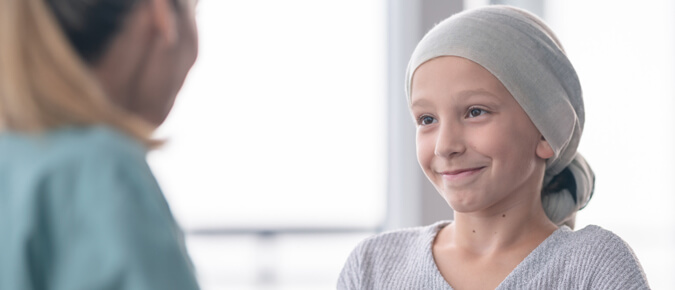
Ground-breaking new research into some of the most devastating childhood cancers: brain cancer and acute lymphoblastic leukaemia (ALL), has been made possible by Cancer Council NSW funding.
“These projects are set to change the way childhood brain cancer and acute lymphoblastic leukaemia are treated and will ultimately save the lives of many Australian children,” Cancer Council NSW’s Chief Executive Officer, Professor Sarah Hosking says.
Professor Richard Lock from Children’s Cancer Institute will lead the research into ALL – the most common cancer in children. As it stands, after initial treatment, up to one in five children with the disease will eventually relapse and half of these patients will not survive. To identify which children are at high risk of relapse, clinicians currently collect bone marrow samples to check for any remaining residual ALL cells, which is an invasive and time-consuming procedure.
“Our team will use new technology to study tumour DNA in the blood of each patient and look at the cycle of ALL progression – diagnosis, remission and relapse. This research will pave the way for the team to develop less invasive and personalised diagnostic tests to detect residual ALL cells still present after treatment,” Professor Lock says.
This ground-breaking new testing approach will lead to improved detection of the smallest of traces of cancer left behind after treatment. And as the blood test is minimally invasive, clinicians will be able to test more frequently, allowing them to monitor for changes and personalise ongoing treatment options in real-time. ”Through this research, we can save and improve the lives of children with even the most aggressive cancers,” Professor Lock continues. Once the team have successfully developed this new diagnostic approach, it could be applied to other cancers in children and adults.
Associate Professor David Ziegler, also at the Children’s Cancer Institute, is focused on finding new ways to treat aggressive and otherwise incurable childhood brain cancers. High-Grade Gliomas, and specific subtypes of medulloblastoma and ependymoma, are among the most aggressive of all childhood brain cancers. Many children with these devastating brain cancers will succumb to the disease within a few years of diagnosis.
A/Professor Ziegler and his team recently discovered that a specific molecular pathway is overactive in aggressive childhood brain cancer. Further lab testing by the team has shown this molecular pathway is a promising treatment target.
“In this project, we will use samples from the most aggressive childhood brain tumours to test if a new drug combination can switch off the overactive molecular pathway and halt cancer progression. We will also test the effectiveness of this drug combination alongside chemotherapy and other current treatments to see if their effectiveness is enhanced. The results from this project will lead directly to new clinical trials where we aim to offer new hope for children with the most aggressive brain cancers,” A/Professor Ziegler says.
Both pieces of research are among twelve new research projects Cancer Council NSW has awarded funding to totalling more than $5.3million over the next three years. The projects span a range of cancers and challenges facing Australians living with cancer.
Professor Hosking says, “Cancer Council NSW is one of Australia’s largest non-government supporters of cancer research. We fund world-class research that reduces the impact of cancer. We wouldn’t be able to do this without our supporters. Thanks to them, we’re making huge strides towards a cancer free future through our research.”






